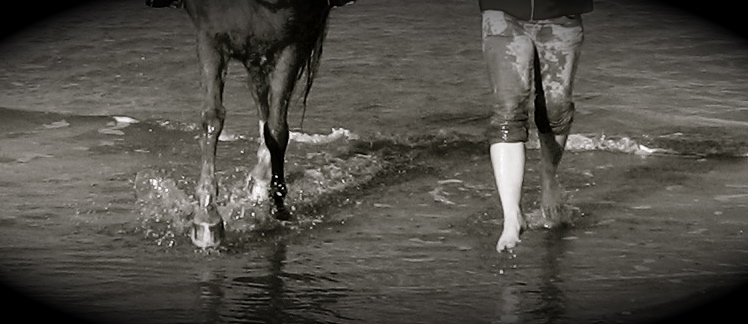|
No Oil on Hooves
In nature, there is no way for a horse to obtain oil or grease on its hooves. Horses that are kept in unnatural conditions have their hooves dry out and the hoof becomes brittle due to a lack of exposure to water. Oils and grease not only prevent the absorption of water but also decay into volatile fatty acids and ester. These acids can damage the hoof far more than if nothing is done. The hoof itself has no oil glands like that of the human skin, however, it does have a water reservoir (the periople) and sweat glands in the frog. There are no natural reservoirs of grease or oils in the wild and furthermore, no one has observed horses trying to find oil or grease to coat their own hooves. It stands to reason that hooves are not set up to deal with these human products. However, that being said, laurel oil-containing lotions could be massaged into the coronet band to promote hoof growth (if the hoof can function and pump properly). To develop a strong hoof more naturally, a horse needs movement, exposure to all different types of terrain, correct hoofcare, coffin bone development from birth, exposure of hooves to water and the correct living conditions. |
No Covers or Blankets or StablesBlanketing, clipping, covering and stall keeping wreak havoc with the horse's natural thermoregulatory mechanism in a number of ways. Three of the four temperature regulating mechanisms of the skin function via the action of a muscle. Any muscle requires training to perform optimally. When a blanket or cover is used or the horse hair is clipped, the muscle that raises and lowers the hair is able to be used and then atrophy. Then when the temperature does change abruptly, the horse is unable to regulate its own temperature and this is when the horse can catch a cold.
We feel at EQHC that blanketing/covering, oil on hooves and stabling are more for the human's benefit than the horse. |


